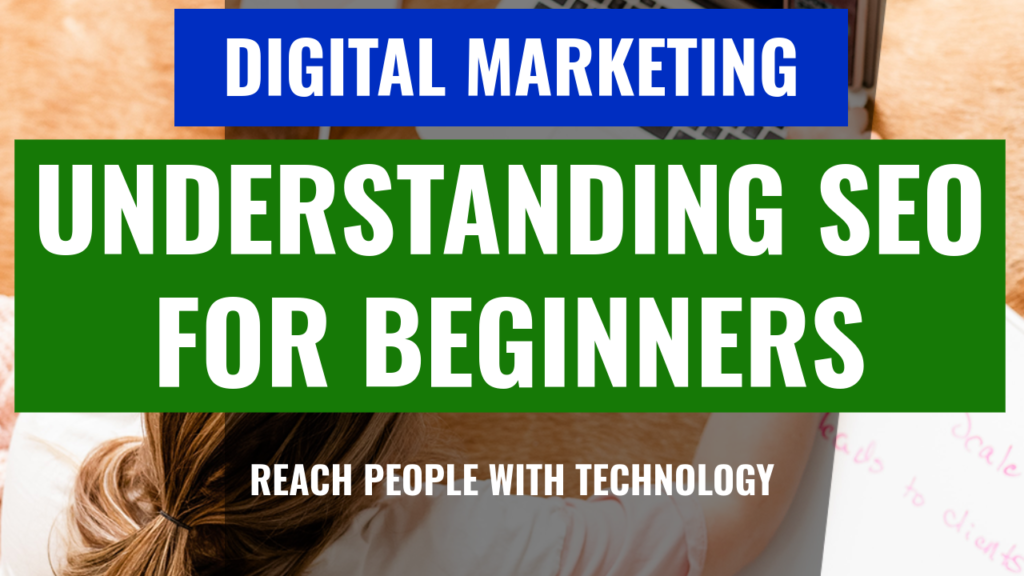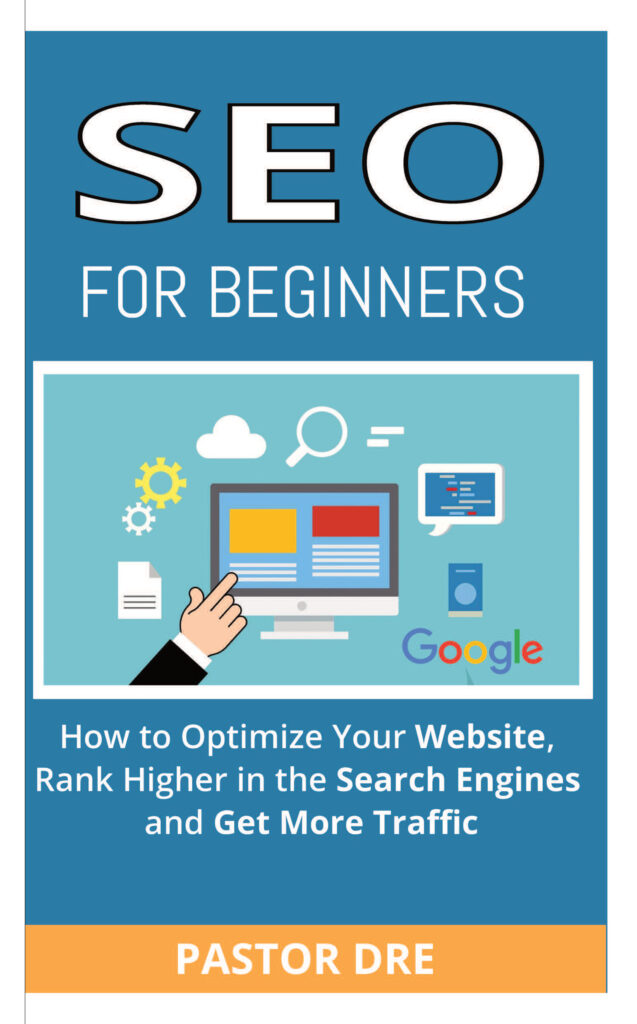Here is a power packed blog on Understand SEO For Beginners. As the world continues to become increasingly digital, search engine optimization (SEO) has become an essential part of any successful business marketing strategy.
But what exactly is SEO, and how can you get started with it? In this guide, we'll break down everything you need to know about SEO, including what it is, how it works, and some tips for getting started.

What is SEO?
SEO, or search engine optimization, is the practice of optimizing your website to rank higher in search engine results pages (SERPs).
It's an important part of digital marketing, because if you're not showing up in search results, you're missing out on potential customers.
SEO can be a complex topic, but there are some basic principles that beginners should understand.
These include keyword research, on-page optimization (such as optimizing your page titles and meta descriptions), and off-page optimization (such as building backlinks to your site).
By following these basic principles, you can start to improve your website's visibility in search results and drive more traffic to your site.
Why is SEO important?
The higher your website ranks in search engine results, the more likely people are to find and click on it.
By optimizing your website for search engines, you can attract more traffic to your website and potentially increase your sales or revenue. Additionally, ranking higher in search engine results can help you establish your brand as a credible authority in your industry.
How does SEO work?
Search engines use complex algorithms to analyze and rank websites in their search results.
While the exact algorithm used by each search engine is a closely guarded secret, we do know that search engines look at a number of factors when ranking websites. These factors can include:
– The relevance of the content on your website to the user's search query
– The quality of the content on your website
– The structure of your website and its pages
– The number and quality of links pointing to your website
– The user experience of your website (e.g. how easy it is to navigate and use)
In order to rank higher in search engine results, you need to optimize your website and its content to align with these factors.
Check out my eBook – SEO For Beginners

SEO For Beginners – A Comprehensive GUIDE to get you started in Search Engine Optimization.:
How to Optimize your Website, Rank Higher in the search engines and Get more traffic to your website
SEO For Beginners
A Comprehensive GUIDE to get you started in Search Engine Optimization.
Okay, brace yourself, folks, because I'm about to take you on a journey. A journey that involves social media, SEO, and some seriously cheeky punchlines. Ready? Let's go.
How to get started with SEO
Now that you have a basic understanding of what SEO is and why it's important, let's take a look at some tips for getting started with SEO.
- Conduct keyword research
Keyword research is the process of identifying the keywords and phrases that people are using to search for products or services related to your industry.
By identifying these keywords, you can create content that is relevant to what people are searching for and optimize your website to rank for those keywords.
There are many tools available for conducting keyword research, including Google AdWords Keyword Planner, SEMrush, and Ahrefs. When conducting keyword research, look for keywords that have high search volume and low competition.
- Optimize your website for on-page SEO
On-page SEO refers to the things you can do on your website to improve its ranking in search engine results. This includes things like:
– Optimizing your page titles and meta descriptions to include your target keywords
– Creating high-quality, relevant content that is optimized for your target keywords
– Using header tags (H1, H2, H3, etc.) to structure your content
– Using alt tags to describe images on your website
– Making sure your website is mobile-friendly
By optimizing these on-page factors, you can make your website more attractive to search engines.
- Build high-quality backlinks
Backlinks are links from other websites that point to your website. Search engines use backlinks as a way to determine the quality and relevance of your website.
The more high-quality backlinks your website has, the more likely it is to rank higher in search engine results.
To build backlinks, consider:
– Creating high-quality, shareable content that people will want to link to
– Guest blogging on other websites in your industry
– Building relationships with other website owners or bloggers in your industry and asking them to link to your website
- Monitor your website's performance
Finally, it's important to monitor your website's performance in search engine results and make adjustments as necessary.
Use tools like Google Analytics and Google Search Console to track your website's traffic and rankings over time.
If you notice that your website is not ranking as well as you'd like, consider making adjustments to your on-page SEO or building more high-quality backlinks.
What is on page SEO?
On-page SEO refers to the techniques used to optimize individual web pages in order to improve their search engine ranking.
This includes optimizing your content, headings, images, and other on-page elements to make sure they are all working together to provide value to your audience and signal to search engines what your page is about.
For beginners, the best place to start is with keyword research. Identify the keywords and phrases that your target audience is searching for, and use them in your headings, content, and meta descriptions.
Other key on-page elements to consider include your URL structure, internal linking, and the use of multimedia elements like images and videos.
By taking these steps to optimize your on-page SEO, you can improve your search engine rankings and attract more traffic to your website.
Conclusion
In conclusion, understanding SEO is essential for any beginner who wants to grow their website or business online.
By implementing the basic principles of SEO, such as using relevant keywords, optimizing your website structure, and creating high-quality content, you can improve your search engine rankings and drive more traffic to your site.
SEO can be a complex and ever-changing field, but by understanding the basics and implementing some simple strategies, you can start to improve your website's ranking in search engine results.
By focusing on creating high-quality, relevant content and building high-quality backlinks, you can attract more traffic to your website and potentially increase your sales or revenue.
Remember, SEO is not a one-time effort, but an ongoing process that requires patience and persistence.
With time, effort, and a good understanding of SEO principles, you can achieve higher search engine rankings, attract more visitors to your site, and ultimately grow your business.
So, start implementing these SEO strategies today and watch your website traffic and online visibility soar!
